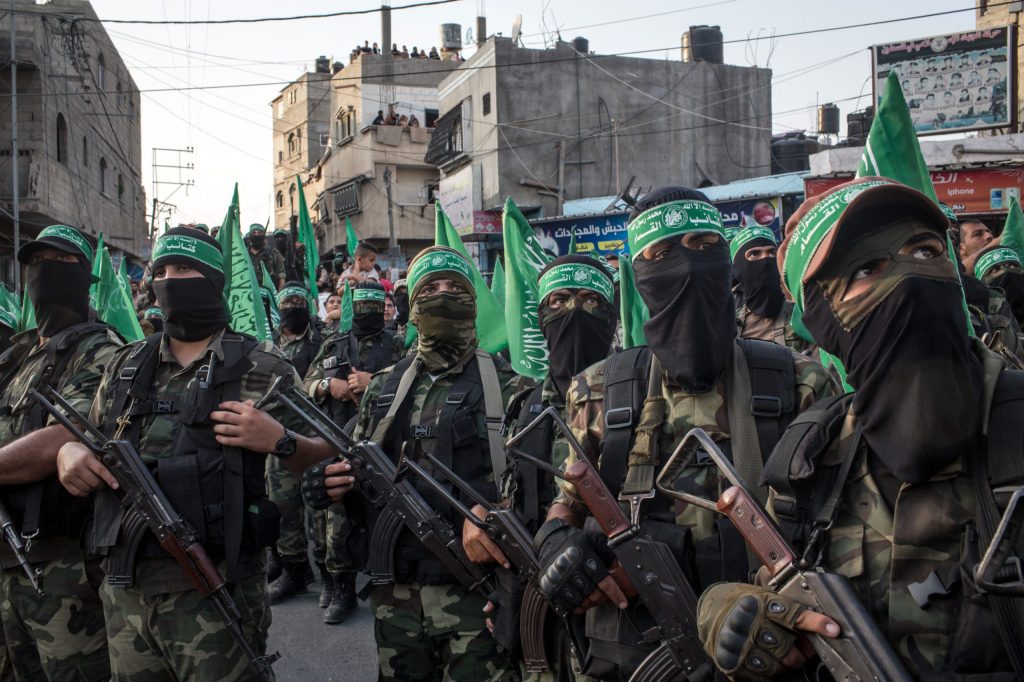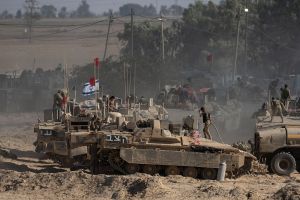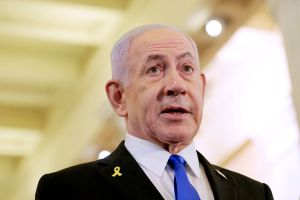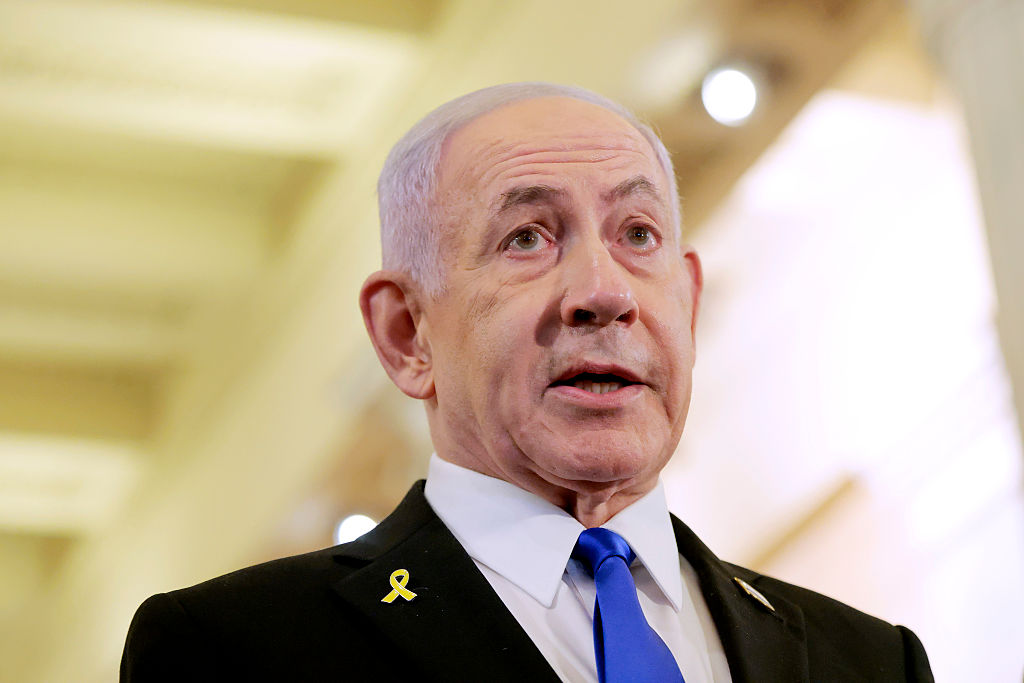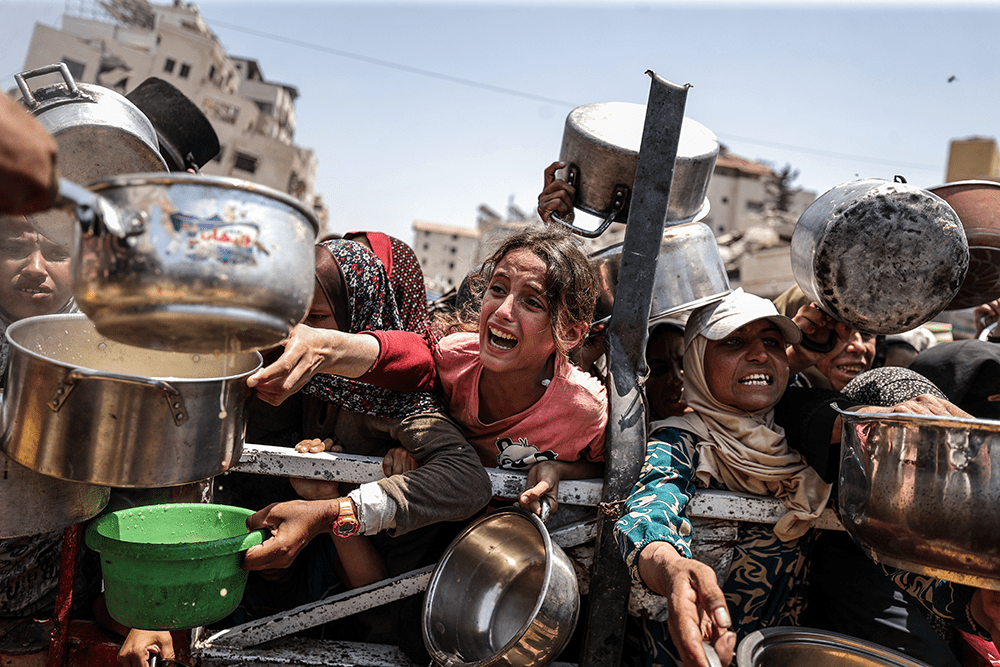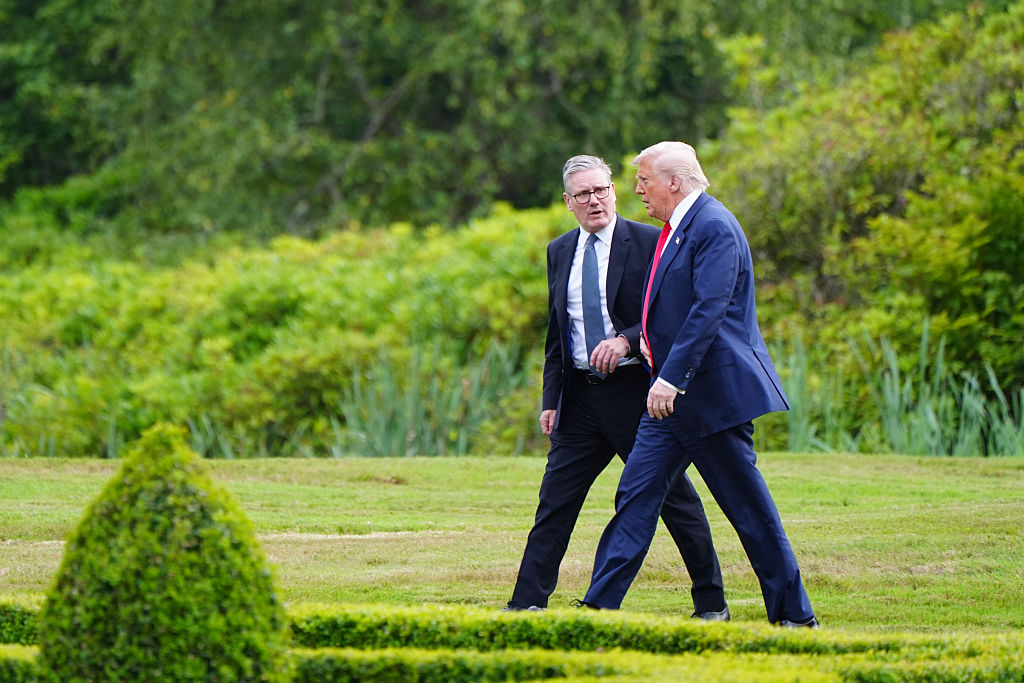Do Hamas’s supporters in the West know what this organization really stands for? The reality is that Hamas is no liberation movement in search of a Palestinian nation. Instead, it seeks the destruction of Israel and the establishment of an Islamic empire on its ruins. How do we know? Because senior Hamas leader Mahmoud al-Zahar has said so:
‘Islamic and traditional views reject the notion of establishing an independent Palestinian state… In the past, there was no independent Palestinian state… This is a holy land. It is not the property of the Palestinians or the Arabs. This land is the property of all Muslims in all parts of the world… [Hence] our main goal is to establish a great Islamic state, be it pan-Arabic or pan-Islamic.’
Understanding this makes it clear that the most recent bout of fighting — in which thousands of rockets have been fired and dozens killed — has little to do with freeing Palestinians from Israeli domination. It is inspired instead by the idea of freeing the Holy Land from Israel.
When Mahmoud Abbas, president of the Palestinian Authority, called off the first elections in 15 years last month — fearing that Hamas might seize control once again — Islamist groups swiftly played up the age-old conspiracy of a Jewish threat to the al-Aqsa mosque. First, Hamas drew thousands of rioters to Temple Mount. Then it fired a barrage of rockets at Israeli towns near Gaza under the false pretense of protecting the Jerusalem rioters.
Israel’s restrained response indicated a clear reluctance to escalate. The government used minimal force to restrain the Temple Mount rioters. But Hamas upped the ante and threatened a missile strike on Jerusalem. The terror group demanded the withdrawal of Israeli forces and the cessation of court proceedings by Israeli settlers to evict Palestinians from a neighborhood in Israeli-annexed East Jerusalem.
No sovereign state could accept a dictate by a terrorist organization, especially one committed to its destruction. And given a liberal state cannot order its judiciary to cease court proceedings for political reasons, Israel declined and Hamas made good on its threat. On May 10, it bombed the Holy City as Israelis were celebrating Jerusalem Day. This armed attack on the nation’s capital left Israel’s government little choice but to respond robustly. After all, what else can be done when terrorists try to kill your citizens?
What has made this latest conflagration particularly traumatic for Israeli Jews is not Hamas’s missiles, but rather the tidal wave of violence unleashed by some of their Arab compatriots in support of Hamas. The cities of Jaffa, Haifa, Acre, Ramla and Lod — once considered showcases of Arab-Jewish co-existence — have been rocked by mass violence and vandalism. Synagogues and religious seminaries have been torched. Torah scrolls desecrated. Jewish residents attacked in their homes by Arab neighbors with whom they had co-existed peacefully for decades.
Reluctant to acknowledge this volcanic eruption for what it is — a nationalist and Islamist insurrection, rejecting the Arab minority status in the Jewish state — some attribute this uptick in violence to the supposed longstanding discrimination and marginalization of the Arab minority. But the idea of discrimination couldn’t be further from the truth. Why? Because the riots came after a decade of unprecedented government investment in Arab neighborhoods and businesses, including a 15 billion shekel ($4.6 billion) socioeconomic aid program.
Of course, those rioting may not represent the bulk of Israeli Arabs, who want nothing more than to live peacefully. They wish only to get on with their lives and take advantage of the freedoms and opportunities afforded by Israel, no matter how much they might resent their minority status in a Jewish state. Yet from the start of the Arab-Israeli conflict a century ago, Palestinian Arab society has been badly represented by its leadership; and it has been swayed too by a sufficiently large militant minority that seeks to impose its will on the silent majority at the cost of repeated disasters.
While many in the West are quick to condemn Israel for its response to Hamas’s rockets, they must face up to the fact that Hamas does not only have its eyes on the Holy Land. Instead, this is a terror organization committed to global Islamic hegemony. As Khaled Mash’al, Hamas’s long-time leader, put it in 2006, when a tidal wave of Muslim violence swept across the world in response to satirical depictions of Muhammed in a Danish newspaper:
‘By Allah, you will be defeated… Hurry up and apologize to our nation, because if you do not, you will regret it… Tomorrow, our nation will sit on the throne of the world. This is not a figment of the imagination but a fact. Tomorrow we will lead the world, Allah willing.’
Mash’al’s words make it clear there is no difference between Hamas’s commitment to Israel’s destruction and the Islamists’ plans for the West. To imagine that Hamas can be appeased or deflected is to make a big mistake. Western nations must stand by Israel — and be prepared to call out Hamas for what it is.
This article was originally published on The Spectator’s UK website.



